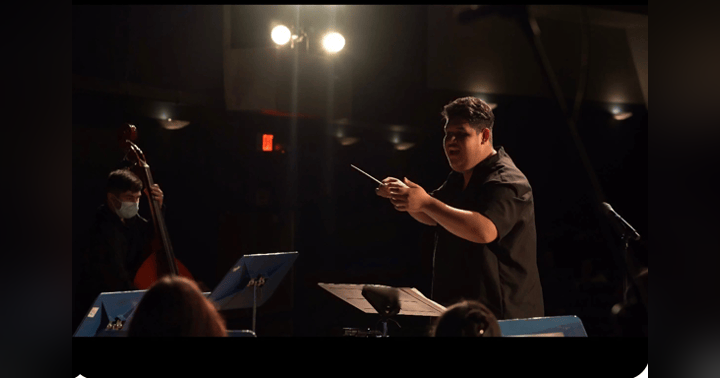"Love Across Party Lines: How Our 22-Year Relationship Survives Political Differences"

Today, I'm sharing a story that's giving Romeo and Juliet a run for their money—minus the tragic ending and theatrical teen drama. Instead of Montagues versus Capulets, it's Democrats versus Republicans—in my house. And let me tell you, it's been 22 years of political sword fighting that would make that Shakespearean feud look like a gentle game of patty-cake.
Every four years, like clockwork, our home becomes Ground Zero for what I like to call "Divorce Court: Home Edition." It’s like our otherwise stable, loving relationship gets close to hiring lawyers and deciding on who gets the dogs, which is saying something because we aren’t even married and don’t live together. (That’s another thing people don’t get. Think of it this way: it’s like the difference between professional development days that take up all your time when all you need is a little time to work in your own room.) This year was particularly testy, as one might imagine.
You're Dating a What???
When people find out about our political differences, they look at me like I just announced we're planning to vacation on Mars. "But... but... how do you LIVE together?" they sputter, clutching their politically homogeneous pearls. I mean, seriously, Karen, we manage the same way you manage to eat that questionable potato salad at every staff potluck - with trust, hope, and a strong constitution.
Let me break it down for you, teacher-style:
Objective: Maintain a loving relationship despite political differences. Materials Needed:
- 1 conservative partner
- 1 liberal partner
- Endless supply of patience
- Sense of humor (extra credit)
- A glass of Manischewitz (I’m Jewish, I drink that. Don’t judge…)
Now, here's where people get it twisted. They think political views are like pineapple on pizza - a deal-breaker that defines your entire personality. (I used that simile for the sake of comparison. Personally, I like pineapple on my pizza. Again, don’t judge), However, something I learned in my two decades of committed involvement in a cross-party relationship is that political beliefs are just one ingredient in the complex casserole of human personality. And my man? He's got more layers than the stack of papers on my desk during finals week.
This is the same guy who:
- Makes sure my Hydroflask is iced up and ready to go every morning.
- Helps elderly neighbors with their yard work and goes around my condo complex picking up all the “presents” inconsiderate dog owners leave behind.
- Rescues spiders from the house instead of committing arachnid murder
- Makes soup when I'm sick (and doesn't virtue signal for sympathy likes on Instagram . Well, that could be because he doesn’t really know what Instagram is, but still)
Does this sound like someone I should kick to the curb because we disagree on tax policy? Please. That's like throwing away a perfectly good expo marker just because it's not your favorite color. The bottom line is that I respect his right to have his political views, and he respects mine. That is the extent of politics in our relationship. It has so many more funny, romantic, and supportive facets than debating partisan policies.
So, How's the Weather?
Not to say it doesn’t get testy, it does. While I’d like to say we can sit together over a nice cup of morning coffee and have a civil discussion about our divergent opinions, we often can’t. It starts OK but usually ends with his raised voice (he says he’s just passionate) and me silently feeling sorry for his “indoctrination.” So, for the most part, I consciously decide to avoid these types of discussions. It’s not worth the potential stress it causes when the outcome will remain the same. It’s the same when you see protesters on opposite sides of the street (passionately) yelling at each other. Is that really changing anybody’s mind?
So what’s a couple to do? Agree to ignore it. And it would help if you ignored it with your friends, too.
Put your political beliefs back in the closet. No one needs to know your political leanings. That's why voting booths are private.
When You Need to Vent, Find Someone in Your Corner
I had dinner with my like-minded sister and her husband the other night. We sat and commiserated and decried and worried about all the things we didn’t like about the election result. It felt good to have that outlet. (Confirmation bias always feels righteous). They asked about my partner. Had he changed his viewpoint? “Of course not,” I replied. Why should he? He thinks our viewpoints are just as crazy. That’s not an argument anyone is going to win.
There shouldn’t be winners and losers in a discussion—that’s not the point of a “discussion.” People will not change their perspectives until both parties are open to learning about different viewpoints, which is why I don’t discuss politics with my partner. He’s still too “passionately” embedded in his viewpoints to consider the validity of someone else’s. And when someone’s voice goes up (passionate or not), I shut down. I’m more than ready to listen when he is.
The serious part (yes, like the last five minutes of class, this is important): We can't keep treating political differences like a communicable disease. Democracy isn't built on everyone agreeing, and neither are relationships. – They are built on the ability to disagree and work toward compromise without unfriending each other on Facebook or storming out the door with your dog and divorce lawyer’s number.
Two Ears, One Mouth
If we surround ourselves only with people who think exactly like us, we will never find common ground. Talking to people who think differently can be intimidating, like a substitute walking into a classroom of post-Halloween middle schoolers on a Friday before a three-day weekend. But that sub might have the best day and learn something new. That sub needs an optimistic attitude to walk into that class, and so do you when the opportunity to talk with someone of differing beliefs presents itself.
So here's your homework assignment: Stop dismissing people just because they vote differently than you. Take a breath and turn down the emotional temperature just a bit. Start listening to understand their point of view and where it comes from rather than rushing to respond.
After dinner, my sister and brother-in-law walked me back to my car. She said, “I don’t know how you do it. You’re a better person than I am.” And I thought, maybe I am.
So stop asking me how I can possibly be in a loving relationship with someone who is my political opposite, and instead, ask yourself why you can't.


